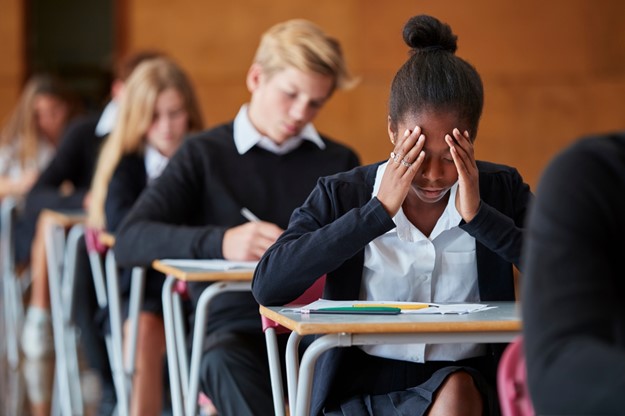In today’s fast-paced world, teens face numerous pressures—from academic expectations to social dynamics—that can lead to heightened anxiety. This mental health challenge can affect every aspect of a young person’s life, making daily tasks and decisions feel overwhelming. However, understanding anxiety and employing effective coping mechanisms can significantly improve the quality of life. This comprehensive guide from Eva Carlston Academy reviews practical strategies for managing anxiety, including mindfulness, relaxation techniques, and lifestyle adjustments tailored for teens.
Understanding Anxiety in Teens
Anxiety is a natural response to stress, serving as a warning system that alerts us to danger. While occasional anxiety is normal, persistent or excessive anxiety that interferes with daily life may indicate an anxiety disorder. Symptoms vary but can include persistent worry, restlessness, difficulty concentrating, rapid heartbeat, and avoidance of anxiety-provoking situations.
Recognizing the signs and understanding the triggers of anxiety are crucial steps toward management. Common triggers for teens include academic pressure, social situations, family issues, and changes in routine. By identifying what exacerbates your anxiety, you can begin to take control and implement strategies to mitigate its impact.
Comprehensive Strategies for Managing Anxiety
• Recognizing the Signs and Triggers
Awareness is the first step in managing anxiety. Pay attention to the situations that increase your anxiety and how your body responds. Keeping a journal can be a helpful way to track these triggers and responses, providing insight into patterns that you may need to address.
• Deep Breathing and Relaxation Techniques
Deep breathing exercises are a cornerstone of anxiety management. They can quickly help calm the mind and reduce physical symptoms of anxiety. The 4-7-8 technique is an excellent starting point, but there are many other breathing exercises to explore, such as diaphragmatic breathing or alternate nostril breathing. Incorporating these exercises into your daily routine, especially during moments of stress, can provide immediate relief.
• Mindfulness and Meditation
Mindfulness teaches you to focus on the present moment without judgment. This can be particularly effective for managing anxiety by preventing the mind from dwelling on past worries or future fears. Meditation apps and guided sessions can introduce you to mindfulness practices, which can be as simple as focusing on your breath or engaging in mindful walking. Regular practice enhances your ability to remain present and reduces anxiety over time.
• Establishing a Supportive Routine
A consistent daily routine can provide a sense of security and predictability, reducing anxiety. This includes regular sleep patterns, healthy eating habits, dedicated time for study and relaxation, and regular physical activity. Creating a balance between responsibilities and leisure can help manage stress levels and promote a sense of well-being.
• Physical Activity and Exercise
Exercise is a powerful tool for reducing anxiety. It not only improves physical health but also boosts mood and reduces stress through the release of endorphins. Activities can vary from team sports to individual exercises like jogging, yoga, or swimming. Find an activity you enjoy and incorporate it into your weekly schedule to maximize its anxiety-reducing benefits.
• Digital Detox and Screen Time Management
The digital world, especially social media, can be a significant source of anxiety for teens. Limiting screen time, particularly before bedtime, can help improve sleep quality and reduce anxiety. Consider setting specific times of the day for device use and engaging in offline activities, such as reading or spending time in nature, to counterbalance online interactions.
• Seeking Support and Professional Help
It’s crucial to remember that reaching out for help is a sign of strength. Sharing your feelings with friends, family, or trusted adults can provide comfort and understanding. If anxiety continues to impact your life, seeking professional help from a therapist or counselor can offer targeted strategies and support. Mental health professionals can provide a safe space to explore your feelings and develop personalized coping mechanisms.
Relaxation Exercises to Incorporate into Daily Life
• Guided Imagery and Visualization
Find a quiet space to relax, close your eyes, and imagine a peaceful scene. Focus on the sensory details of this place—the sights, sounds, and smells—to fully engage your senses and promote relaxation.
• Progressive Muscle Relaxation (PMR)
PMR involves tensing and then gradually releasing each muscle group in the body. This practice not only helps in recognizing areas of tension but also promotes overall relaxation. Starting from the toes and moving upwards can systematically reduce physical stress and anxiety.
• Yoga and Tai Chi
These practices combine physical postures, breathing techniques, and meditation to enhance mental and physical health. Many online platforms offer sessions tailored to beginners, making it easy to start from the comfort of your home.
• Gratitude Journaling
Maintaining a gratitude journal, where you note down things you’re thankful for each day, can shift focus from anxiety to positivity. This simple practice can cultivate an attitude of gratitude, enhancing overall happiness and reducing worry.
In conclusion, managing anxiety is a journey that involves understanding its roots, recognizing triggers, and applying effective coping strategies. By incorporating these techniques into your daily life, you can achieve a greater sense of calm and control. Remember, it’s okay to seek help and support along the way. With patience and persistence, you can navigate the challenges of anxiety and lead a fulfilling, balanced life.
